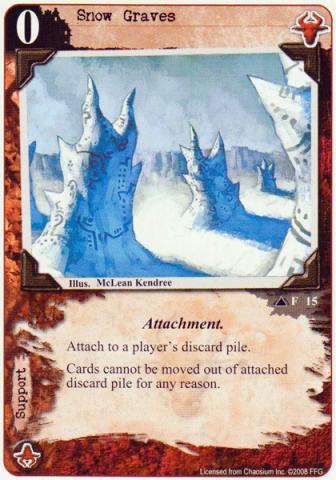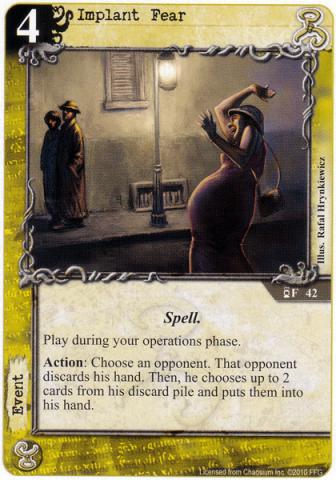Hey Guys,
First time posting… I'm experimenting with hastur/yog discard strategy. I was wondering how Snow Graves (SG) and Implant Fear (IF) interact with each other. Clearly, IF causes the opponent's hand to be discarded in its entirety. However, the second part of the effect allows an opponent to retrieve two cards from his discard pile. Since SG precludes the second part of the effect from happening, does this mean that only the second effect of IF is stopped or does that mean that the first effect (discard hand) of IF ends up fizzling since the second effect is stopped?

